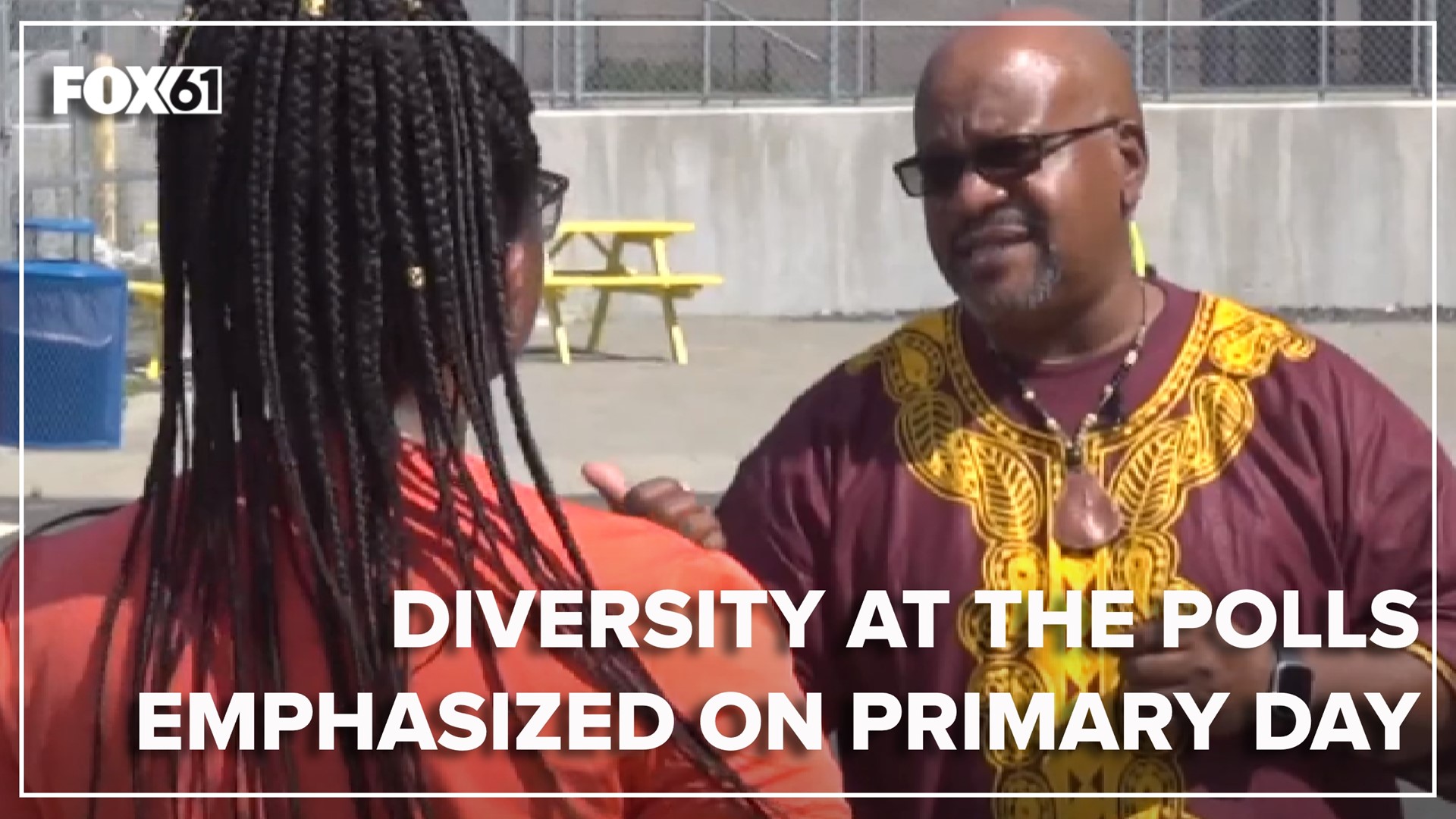HARTFORD, Conn. — Historically, people of color have been underrepresented in voter turnout during elections. Though trends are changing, barriers still exist that contribute to voter oppression in Black and brown communities.
Claudine Constant, the public policy and advocacy director at the ACLU of Connecticut, explained that the narrative tends to be that Black and brown residents don’t care about voting. In reality, there are issues to access that prevent voters in these communities from casting their ballots, she said.
"Connecticut is among one of the worst states in the country when it comes to laws that make the ballot accessible to people, especially people of color," explained Constant.
She said Connecticut is one of only four states without in-person early voting and one of a few with no excuse for absentee voting, which has created significant barriers. This issue is on the ballot during the general elections in November.
"When there are restrictions on a ballot access, the people hurt and hurt first and worst are typically black and Latinx people because of systemic racism," said Constant.
ACLU of Connecticut said one example is that voters in predominantly black neighborhoods are 74% more likely to wait more than 30 minutes to vote on election day than voters in primarily white areas.
"It means people without the luxury of time, particularly because of work, childcare, and other life things that are impacted by systemic racism and oppression, don't get time to go and wait and make sure their voices are heard at the ballot box," said Constant.
Dr. Bilal Sekou, professor of political science at the University of Hartford, said minority communities in Connecticut must get involved in the political process and “know what’s going on” because health care, education, and the criminal justice system affect communities of color.
"So, we need to be involved, and to know what's going on and really paying attention and getting out there and voting,” he said.
Sekou said while there's a long history of voter supersession, it's only been since the 1960s and the passage of the Voting Rights Act that people of color have had access to the polls.
"Voting rights like civil rights, we never win. We get victories, but we always have to keep our mind on the fact that there are folks out there who are struggling against us," he said. "It's not pre 1965 in terms of pre-Voting Rights Act, but people are making an effort to try and take us back to 1965, but we're in a much better place to prevent that from happening."
Dr. Wesley Renfro, professor of political science at Quinnipiac University, explained that despite the barriers people of color have faced at the polls, a recent uptick in Black women voters.
"So, when we get people to start voting, they are much more likely to continue voting," said Renfro. "So, when you get them there once or twice, they're more likely to show up two years after that, two years after that, and four years after that."
While showing up is essential, accessibility is crucial.
"It is important that we make voting accessible to everybody and that everybody believes that they can and should vote," said Renfro.
---
Have a story idea or something on your mind you want to share? We want to hear from you! Email us at newstips@fox61.com
---
HERE ARE MORE WAYS TO GET FOX61 NEWS
Download the FOX61 News APP
iTunes: Click here to download
Google Play: Click here to download
Stream Live on ROKU: Add the channel from the ROKU store or by searching FOX61.
Steam Live on FIRE TV: Search ‘FOX61’ and click ‘Get’ to download.

